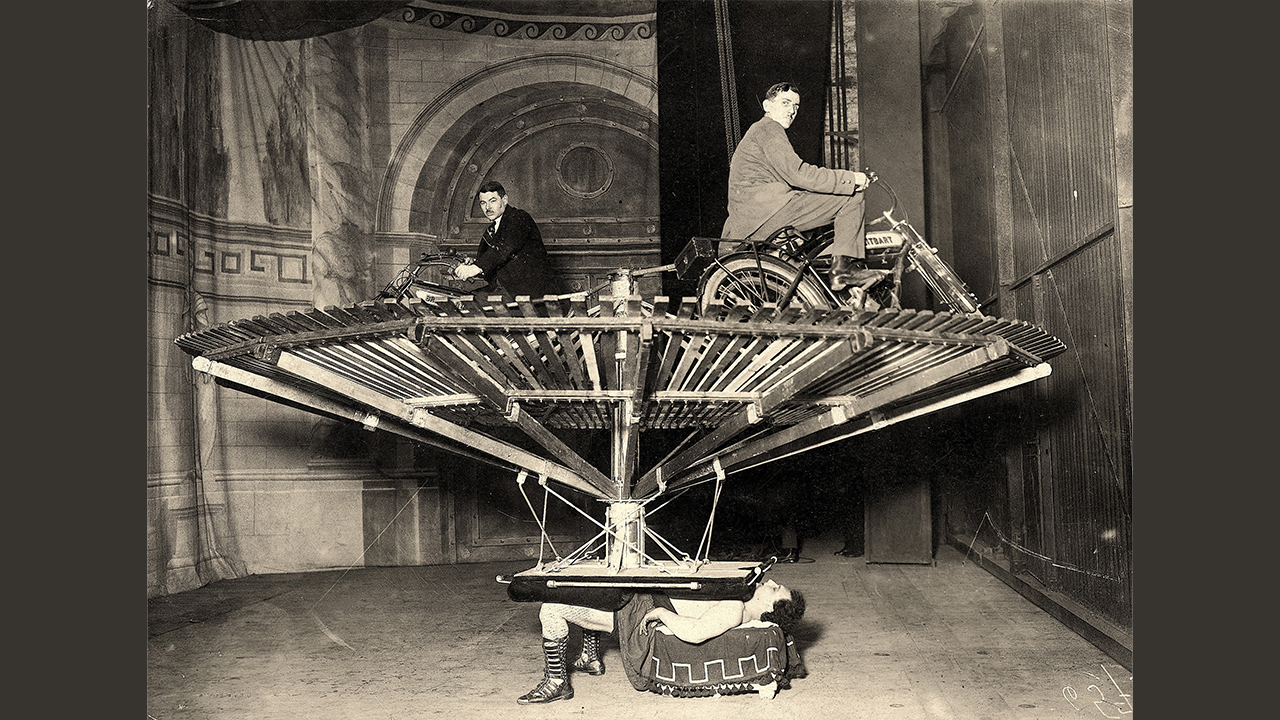Forecasters, Make the Weather Personal
July 4, 2024

The nightly news used to be a ritual, and my grandmother used to shush us—not for the Vietnam body count or the latest on Watergate, but for the weather. She drew her excuses from it. Housework could not possibly be done in July or August; nor could the oven be lit. Running errands was unwise on either side of a thunderstorm, and winter meant you stayed home and played cards. Born into a climate-controlled world in the cocky decades before the climate took revenge, I vowed to never let weather stop me.
I did, however, absorb her obsession. It makes sense to heed the weather. We are little ecosystems tucked inside larger ecosystems that drench us, roast us, freeze us, and blow us hither and yon. Our bodies know this and respond to each change. Our language knows this and uses it for metaphor: storms of anger or creativity, snow as deception or overwork, ice as ruthless cruelty, somebody hot enough to flirt with, a cold shoulder, rainy day blues, spring fever, a sunny disposition, brain fog, clouded thinking, the autumn years, our winter of discontent….
Meteorologists, take the cue. What you give us with such a flourish is incomplete. “RealFeel” involves far more than temp, humidity, and the dew point. Do not stop with, “Tomorrow should be a gorgeous sunny day.” Warn anyone who is grieving to keep the blinds drawn, because the gap between how they feel and how happy and sunshiny the world is will only sharpen their sense of loss.
When we are trapped under a heat dome, stop obsessing with your profession’s technicalities and speak to us of existential angst. Of the violence sparked by extreme heat, the marital crankiness, the bratty bored children. Tell us about the chronic illnesses that will worsen, the people who have no air-conditioned shelter, the elderly dying because they are shut into small apartments and scared of a high utility bill.
When a big storm is coming, explain that the wildly fluctuating barometer might explain why we feel anxious and restless, especially if we are already haunted by some other dread. Pressure is building, and soon there will be too much electricity in the air. Then, of course, it will crash, and in the drama and suspense of that cataclysm, our bodies will first tense, then let go. When the rain stops, we will feel cleansed, fresh again—you can safely promise that.
On bleak, chilly, gray November days, try not to be so perky. Urge us to find a fireplace and a good book. You spend the other months talking about soccer, baseball, fishing, picnics, boating, splash pads, football, and ice skating; why not books? These are introverts’ favorite days.
When it is cold and crisp and sunny, stop acting like we can only be happy again in spring. Whoever said a drop in temperature was automatically bad news? Teach us to bundle up and go outside in freezing temps. We will return flushed, stomping our feet, eager for cocoa, exhilarated by the freshness of the air. Then we will take a nap.
Weather apps already track our sneezes with the pollen count and tell us when to bring an umbrella, and you forecasters give us chatty, avuncular advice. You lecture us about tornados like we are five years old (“Go to your safe space!”) and repeat the same warnings about sunstroke every June. Why not talk about weather in ways even more relevant? We make everything else about us. And weather is one of the few universals left to the human condition.
Writers are taught to use its vagaries to create atmosphere and symbolize internal states of being. In “The Sea, The Sea,” Iris Murdoch writes, “The rain came down, straight and silvery, like a punishment of steel rods. It clattered onto the house and onto the rocks and pitted the sea.” Dickens tells us “the rain had no mercy.” Emily Bronte knew not to send Heathcliff to the moors on a balmy, bird-chirpy morning. Annie Proulx could never have set The Shipping News in Tahiti. Melville did not let his whale glide through placid seas. Even Snoopy knew to begin with a dark and stormy night.
Pundits talk about the political climate, CEOs worry about economic headwinds, therapists focus on the dark clouds of depression. Storms brew in every area of life, and winds change direction. We weather our hardships. Our blood pressure rises and falls with the atmospheric pressure. Our joints creak when fronts collide. We fall in love (or May lust) in spring; we slow down and care less about anything in the dog days of summer. Fall is brisk, busy, productive. In the depth of winter, we hole up like bears.
Acknowledge these aspects of weather, meteorologists. Your lurid maps and dynamic radar are cute, but set them aside for a while. We have all figured out what supercells, the dew point, and a wintry mix are, we have made our peace with El Niño, and La Niña, and we have flat-out given up trying to understand Arctic oscillations. Give us forecasts that tie what is inside us to what is around us. Acknowledge that none of our efforts to influence the weather, seeding clouds or rerouting rivers, comes anywhere close to the influence weather has on our minds and bodies.
Then, perhaps, we will stop complaining about how you are always wrong.
For centuries people took floods and draught to be divine judgments or portents. Cuneiform tablets in Mesopotamia contained the same boring references to the weather that were recorded in letters sent home by young U.S. soldiers during the Civil War (and defined today as small talk). The Egyptians had a sun god; Indians had Indra, deity of rain. The ancient Greeks thought weather influenced the four humors of the body— blood, phlegm, yellow bile, and black bile—that then influenced our mood, health, and temperament.
All that has been swept away. Now we use apps that are rarely right but uber-scientific, quantifying predictions with estimated highs and lows, projected rainfall, ten other measures, radar maps, icons, and a series of graphs. I tap three or four of them a day—they all disagree—and leave unsatisfied. I just want to know how I will feel.
Read more by Jeannette Cooperman here.





